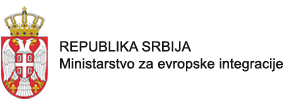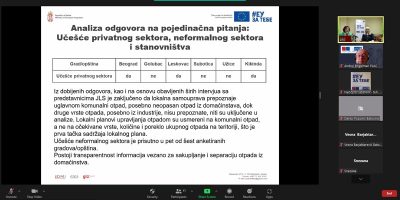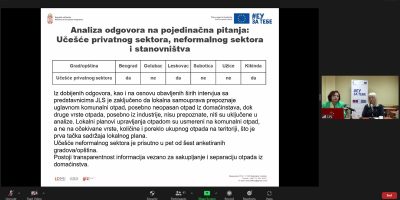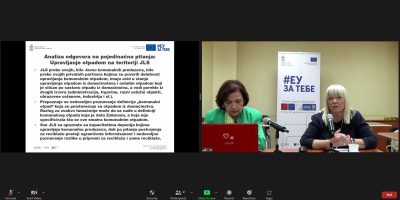Chapter 27: how to improve data collection and reporting on municipal waste management
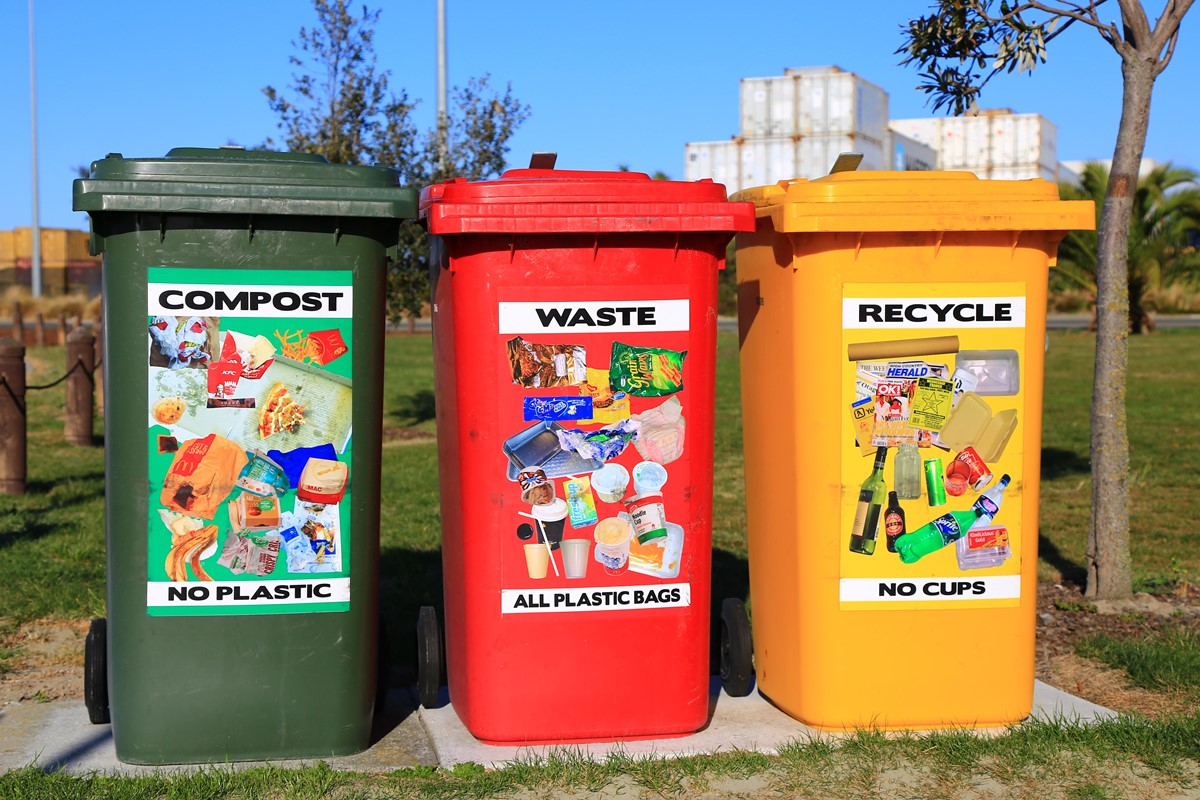
With the support of the PLAC III project, a Draft Rulebook on the content and form of the report on the implementation of provincial, regional and local waste management plans was prepared.
The project has provided support to the Serbian Environmental Protection Agency (SEPA), as responsible authority for monitoring and reporting in the area of Negotiating Chapter 27. According to the European Commission’s 2021 report, in the field of waste management, Serbia has achieved a good level of alignment with the Union acquis, however the implementation remains at an early stage and needs to be improved.
The results of the close cooperation of project experts and beneficary instituutions – SEPA and the Ministry of Environmental Protection were presented at a workshop held on 11 May 2022. Project experts Gordana Petković and Vladica Čudić presented to the participants relevant Union acquis, the analysis of the situation in waste management in local self-government units in Serbia and the draft Rulebook.
Petković said that the EU member states apply the relevant Union legislation in the field of waste management planning and reporting, and gave a comparative analysis in several countries. As part of the adoption of the Circular Economy Package in 2018, the Waste Framework Directive 2008/98/EC was amended through Directive 2018/851.
She gave the overview of EU’s targets for certain types of waste, among which is that 55% of municipal waste should be recycled by 2025, after which it will increase by five percent every five years until 2035.
Expert Vladica Čudić presented the analysis of data on the status of implementation of local waste management plans in Serbia, which showed that the plans in 105 local self-government units had expired by 2020-202, and that only 19 local plans were valid at present. At the regional level, there is no plan in 13 regions, while a regional waste management plan has been prepared in 15 regions, but is valid in only four.
Based on the analysis of the questionnaire sent to local self-government units, Petković made recommendations that a complete database should be provided for evaluation of waste management plans at all levels and measures should be implemented to ensure database quality (optimization of data collection, adoption of new methodology for data processing and evaluation, introduction of an indicator system and development of a methodology for monitoring waste management facilities).
The draft Rulebook regulates the content and form of the report on the implementation of the regional and local waste management plan on the territory of the autonomous province, the regional plan on the territory of two or more local self-government units and the local waste management plan. It envisages, inter allia, reporting on measures for the remediation of unregulated landfills, on the supervision of the implementation of the regional and local plan, as well as on the assessment of costs and sources of financing.
The conclusions of the workshop was that waste management in Serbia is inadequately resolved at the moment and that municipalities and cities in the vast majority do not have adequate waste management plans, while reporting on implementation is incomplete, incorrect or non-existent.
The workshop was attended by 45 participants – representatives of the Ministry of Environmental Protection, SEPA, municipal and city administrations, as well as public utility companies.
Naslovna fotografija: Unsplash (https://unsplash.com/s/photos/waste-management, Photo by Nareeta Martin on Unsplash)
Relevant Union acquis:
Foto galerija
Recent Posts

Notice
9. April 2024.

The fourth project brochure published
29. March 2024.

The last meeting of the Steering Committee
28. March 2024.
Negotiation chapters
- Chapter 1: Free movement of goods
- Chapter 3: Right of establishment and freedom to provide services
- Chapter 8: Competition policy
- Chapter 9: Financial services
- Chapter 10: Information society and media
- Chapter 11: Agriculture and rural development
- Chapter 12: Food safety, veterinary and phytosanitary policy
- Chapter 13: Fisheries
- Chapter 15: Energy
- Chapter 16: Taxation
- Chapter 27: Environment
- Chapter 28: Consumer and health protection
- Chapter 32: Financial control
- Chapter 33: Financial and budgetary provisions
